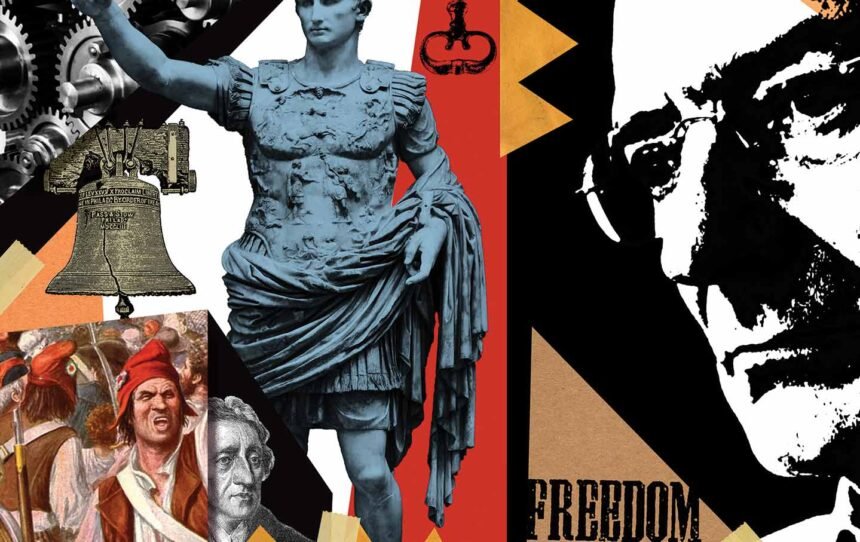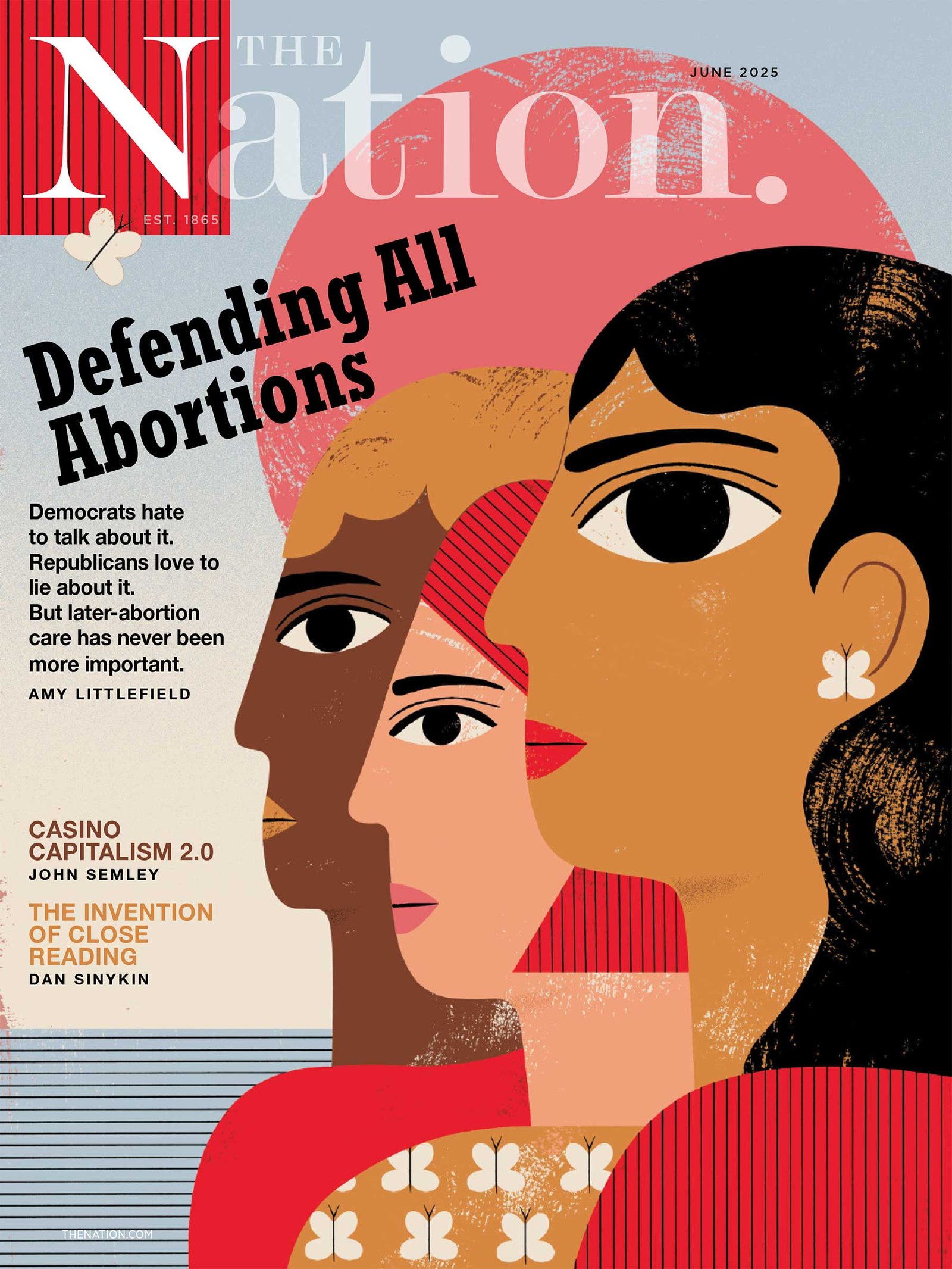Quentin Skinner and the contested history of liberty
Over a long career, Skinner has sought to reclaim the idea of republican liberty for the modern age but his work also raises the question: free for what?
“Free from what?” Friedrich Nietzsche has his counterprophet ask rhetorically. He isn’t interested in the answer. “What does it matter to Zarathustra! Your fiery eyes should tell me: free for what?” The distinguished British historian Quentin Skinner, now in his 80s, has spent the latter half of his career insisting that we have suffered a grievous loss over the past few centuries of politics and philosophy in the West: the loss of a republican vision of freedom from domination, as opposed to the more modern and libertarian notion of freedom from interference that prevails today. And yet, much like the townspeople in Nietzsche’s, philosophical fable, Skinner has never shown much interest in what freedom is for.
Books in review
Liberty as Independence: The Making and Unmaking of a Political Ideal
One of our leading historians of ideas, Skinner has written works of intellectual history that are awe-inspiring. From early on, he crossed over into other disciplines, won an unusually broad audience, and helped revolutionize political theory. Beginning in the 1990s, he also pivoted away from the antiquarianism of his earlier scholarship to champion the relevance of his studies to our own day—though even in that effort, Skinner has remained almost stubbornly enamored with an ancient vision of freedom in the republican tradition.
Freedom is once again the central theme of Skinner’s new book, Liberty as Independence. A work of history that seeks to pinpoint exactly how long the older republican notion of liberty prevailed before being displaced by a more modern and liberal one, it also reassesses the current importance of the struggle against domination for the left. Yet in focusing primarily on this older notion of liberty, the book remains blind to the ways that modernity has redefined the terms of emancipation.
Born near Manchester in 1940, Skinner grew up in a family with Scottish origins. His father served in the Royal Navy before becoming a colonial officer in West Africa, and his mother soon followed him there. Left behind by his parents, Skinner attended boarding schools and established himself as a star from his earliest days as an undergraduate at the University of Cambridge. Unlike today’s students, who write dissertations but don’t get jobs, Skinner never even had to earn a doctorate: His promise was so self-evident that he was made a don at the age of 21.
Skinner owed much of his subsequent academic fame to “Meaning and Understanding in the History of Ideas,” an astonishing broadside, published in 1969, against historians of political thought who either failed to consider the intellectual context of classic texts or reduced them to their material circumstances. Allergic to what he viewed as the reductive approach of Marxist historians, Skinner forbade relating the study of ideas to material concerns and thus refused to contemplate a general social theory; even more, he insisted on rigorous strictures against “presentism” when it came to the history of ideas. “More crudely,” he argued in the essay, “we must learn to do our own thinking for ourselves.”
That broadside established him as a leader of the Cambridge School of the history of political thought, which was dedicated to Skinner’s methodological precepts. He expanded his early focus on 17th-century England to encompass the entire early modern era, most notably in his 1978 classic The Foundations of Modern Political Thought, which he wrote during his half-decade at the Institute for Advanced Study in Princeton. He then returned to Cambridge, where he went on to serve as a professor for decades. After his mandatory retirement from the highest position in his field—the Regius Professorship of Modern History, which is appointed by the monarch—Skinner moved to Queen Mary University of London, where he continued to teach and write before retiring again in 2022.
Though the early years of his long career were defined by an opposition to both materialism and presentism, Skinner would by the middle years had begun to relax some of these prohibitions. Ideas mattered, he explained, because they either helped legitimate the political order or served as proposals to change it; thus, they were related to the world around them in one way or another. Skinner also abandoned his hostility to presentism: Ideas from the past matter now, he concluded, at least for anyone who would like to think beyond their preconceptions and imagine an alternative future.
Among such older ideas, Skinner was most attached to the history of “republicanism” and its ideal of liberty—a tradition, both ancient and modern, that makes freedom from domination and dependence its highest goal, and that Skinner revived for his contemporaries to reconsider.
The aspiration for that form of freedom had begun among Roman thinkers nostalgic for the republic and jurists staking everything on what it meant to be a free man rather than a slave. Skinner’s earlier books on the subject, such as 2008’s Hobbes and Republican Liberty, had focused on his cherished 17th century, in this case seeking to show how Thomas Hobbes had laid waste to the ideal of republican liberty in the name of a new ideal of freedom from interference and restraint. But with Liberty as Independence, Skinner wants to expand the scope of his history in order to demonstrate how, in the centuries that followed, republicanism survived the onslaught, only to then be cast aside and replaced.
To make his case, Skinner examines an extraordinarily wide-ranging set of English-language sources. His goal is to probe how long the republican notion of liberty as independence lasted. But he also hopes to meticulously document how the liberal ideal of liberty as noninterference emerged to replace it, though with no “sudden breakthrough” that left it hegemonic.
One figure who still maintained a fidelity to the republican tradition of freedom was John Locke. So often treated as a libertarian founder of liberalism, Locke, Skinner contends, actually cared most about the political conditions that would allow free men to protect themselves from the arbitrary power of the state. Far from anticipating what Isaiah Berlin later called the “negative liberty” of freedom from interference alone, Locke laid the groundwork for the 18th-century idea of a free state—an ideal transplanted to American soil and central to the cause of the American Revolution in 1776.
A free state doesn’t accept despotism even when it’s beneficent or simply because it leaves people alone. Depriving the people of access to the power to rule—even if that just meant consent to the identity of the monarch from time to time—reduces them to the kind of thralldom that republicans denounced as the very opposite of freedom. Locke put his argument in terms of natural rights and a social contract. But in defending the right to revolution, he wanted people to reclaim their status as free beings who controlled the form of their government.
Popular
“swipe left below to view more authors”Swipe →
As Skinner shows, Locke—who died in 1704—was not the only one making republican arguments as the 18th century went on. The Whigs were too; like Locke, they framed their vision of freedom much more in terms of rights and the rule of law than their Roman and Renaissance forebears had. If rights are observed and the law is followed, they argued, then the arbitrary might of one king or another could remain in check.
Very different from this view, Skinner contends, was that of the pioneers of liberalism, for whom rights and the law had no necessary connection to retaining power for a free people. They argued that an enlightened despot might interfere less with his subjects, even if he had the power to impose his will more. Following the work of some of his students, Skinner goes on to show how the American revolutionaries set out to rescue independence from this “counter-revolutionary” and “pro-imperial” ideal of freedom as noninterference.
In part, Skinner is revisiting here a decades-old quarrel among historians of colonial America and the early United States. During the 1960s and ’70s, historians like J.G.A. Pocock in The Machiavellian Moment and Gordon Wood in The Creation of the American Republic argued that the origins of this country were found not in “liberalism,” as previous historians had maintained, but instead in republicanism.
Skinner’s history attempts to make a similar argument for England, citing not only Locke and the Whigs but also other advocates for the republican ideal of freedom, such as Richard Price and Mary Wollstonecraft. But he also wants to address the question of why this republicanism disappeared. If Pocock and Wood were right, then what went wrong—and when? Why, after the 18th century, did English liberals embrace the notion of freedom as noninterference and abandon the cause of freedom from domination?
Skinner recognizes, of course, that republicanism never entirely died. He acknowledges the radicals who turned to republican ideology in order to contest the oppressions of industrial capitalism in the 19th century. Some of these were working-class agitators and labor organizers, like the Knights of Labor, as Alex Gourevitch has chronicled in From Slavery to the Cooperative Commonwealth. Karl Marx himself had republican leanings, as Bruno Leipold and William Clare Roberts have recently illustrated in their books Citizen Marx and Marx’s Inferno.
But in relation to these more leftist works of intellectual history, Skinner is ambivalent. His intent is to show that, while there is some relationship between capitalism and liberalism (which led many workers to hope to overthrow both together), the choice of models of freedom wasn’t just about economic forms. Liberty as freedom from interference “long pre- dated the eighteenth-century rise of commercial society,” Skinner writes. Too direct a link between capitalism and liberalism, therefore, would “fail to provide an answer to the main historical puzzle that needs to be solved”: Why this “new view of liberty” could “ascend so suddenly to a position of ideological dominance in less than twenty years between the late 1770s and the 1790s.”
Skinner’s solution to this puzzle is to propose that a counterrevolutionary politics prevailed in two different forms during this period. The first was a reactionary version harking back to feudalism and priestcraft, though it was never very strong in the Anglophone world. The second—more prevalent across the Atlantic—was a liberalism that was hostile to the left. It imported Hobbes’s counterrevolutionary endorsement of kings into a new world where liberal elites would deprive the masses of self-rule while offering assurances that people would be left alone in their persons and property.
Skinner closes Liberty as Independence by championing the current importance of freedom as independence—and understandably so. As he notes, if women or workers are dependent, they are oppressed regardless of whether they are also harmed by “overt acts of coercion or interference.” That they are hypothetically free to quit their unfair jobs or divorce their patriarchal mates doesn’t take into consideration why doing so is often “dangerous or impracticable.” Comparably, the people as a whole suffer dependence without democratic representation or rights, and it is no answer to say that the government is acting in their interest or forbearing from injuring them.
Skinner’s is a compelling argument about both the ancient and modern notions of liberty. But in attempting to rehabilitate the precursor to the cramped notion of freedom offered by liberalism, he does not consider that one can ask the same question of freedom from dependence as freedom from interference: Free for what? As a concept and an ideal, “liberty as independence” is redolent of an ancient world in which proud masters (relying on the women and slaves they control) may not be subject to the arbitrary caprice of others, because their freedom is secured through the domination of others. But Skinner’s focus on reviving the ancient ideals of liberty against the modern ones also ends up ignoring the most inspiring form of freedom that the modern world has offered, in both its liberal and socialist variants.
Having spent the latter half of his career doubting and supplementing Berlin’s category of “negative liberty,” Skinner doesn’t register the significance of Berlin’s opposing category of “positive liberty,” never telling its story or reconsidering its virtues. Powerful though it is, Skinner’s saga of the fall of the republican ideal of self-mastery to “liberalism” neglects the possibility of forging new personal and social meanings, such as those inspired by the French Revolution—and that sought, instead of self-mastery, an ideal of freedom as individuality rather than independence. For unlike the American Revolution’s vaunted rhetoric of liberty as independence, the French Revolution’s emancipatory promises inspired a demand for liberty as self-creation—what the radical writer Marshall Berman dubbed “the politics of authenticity.”
Liberalism championed this emancipatory ideal long after the period when Skinner sees freedom from interference triumphing. Whereas Berman ultimately argued that positive freedom required socialism, his teacher (and one of Skinner’s old friends), the Harvard political theorist Judith Shklar, correctly argued that it was only in the later 19th century that liberals fully embraced freedom as the “absence of restraint.” That was precisely when Nietzsche concluded that there was no chance of having positive freedom within the framework of what had become of liberal societies, in which the German philosopher saw little more than marketization and mob rule.
One reason for Skinner’s neglect of the tradition of positive freedom is that it is defiantly modern, and so doesn’t appear on his maps of political thought from the ancient world to the Renaissance and its aftermath. Another is that its sources were Christian rather than Greco-Roman, and Skinner has rarely shown much interest in religion. Yet not only can one find the template for self-making in Hobbes’s own political theory—he owed much of his framework to Christianity, transferring to humankind the creativity to make the state, much as God had made the world by fiat—but one can also find it in a range of modern thinkers who prized freedom as creativity as the highest secular cause.
John Stuart Mill’s On Liberty, with its praise of “individuality,” is a classic example. When Skinner mentions Mill, it is solely as an apostle of freedom from interference, but this ignores the deeper freedom in the name of which he declared limits to communal and state power. Alexis de Tocqueville’s Democracy in America is another, idealizing those creators who “undertook to embellish beauty itself” and sought “something better than nature.” And if this was a core of liberalism, Marx himself inherited the aspiration for self-making when he argued that the “free development of each is the condition for the free development of all,” and vice versa.
To be independent, Skinner concedes, you certainly have to be free to act without interference or impediments as well. In the older view that was supplanted, he says, liberty consisted of being independent enough to be able to make use of the absence of restraint. Fair enough. But from the perspective of freedom as self-making, the same is true: Modern self-creation is impossible with impediments in your way or under the mastery of others alike. But getting rid of either hardly guarantees (or even encourages) what you will do next with your freedom.
Liberals, in short, were not merely the votaries of a cramped noninterference; and if Marx was a republican, that wasn’t all he was. Skinner is absolutely right about the contemporary importance of the history of political thought. But if liberals and socialists want to make a bid for relevance now, they may have to be open to the very notion of freedom they once introduced. The grand story of freedom isn’t just about the loss of the republican ideal of independence to an ascendant liberalism; it’s about the invention of the ideal of free self-creation by liberals and socialists, who continue to squander their contribution even now.
More from The Nation

The mayor of Newark, who was recently arrested by ICE agents at a detention facility, discusses his race to become the governor of New Jersey.

Federalizing the National Guard in response to ICE protests risks bloodshed—which is exactly what this administration wants.












